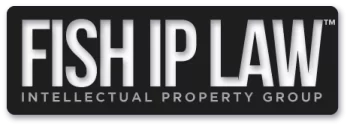NEWS
March-In Madness: Harvard, Bayh-Dole, and the Trump Administration
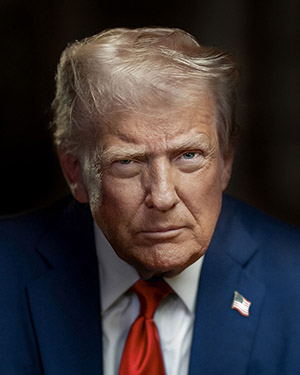
When politicians get involved in patent law, things usually get messy — and the latest spat between the Trump Administration and Harvard over the Bayh-Dole Act is no exception.
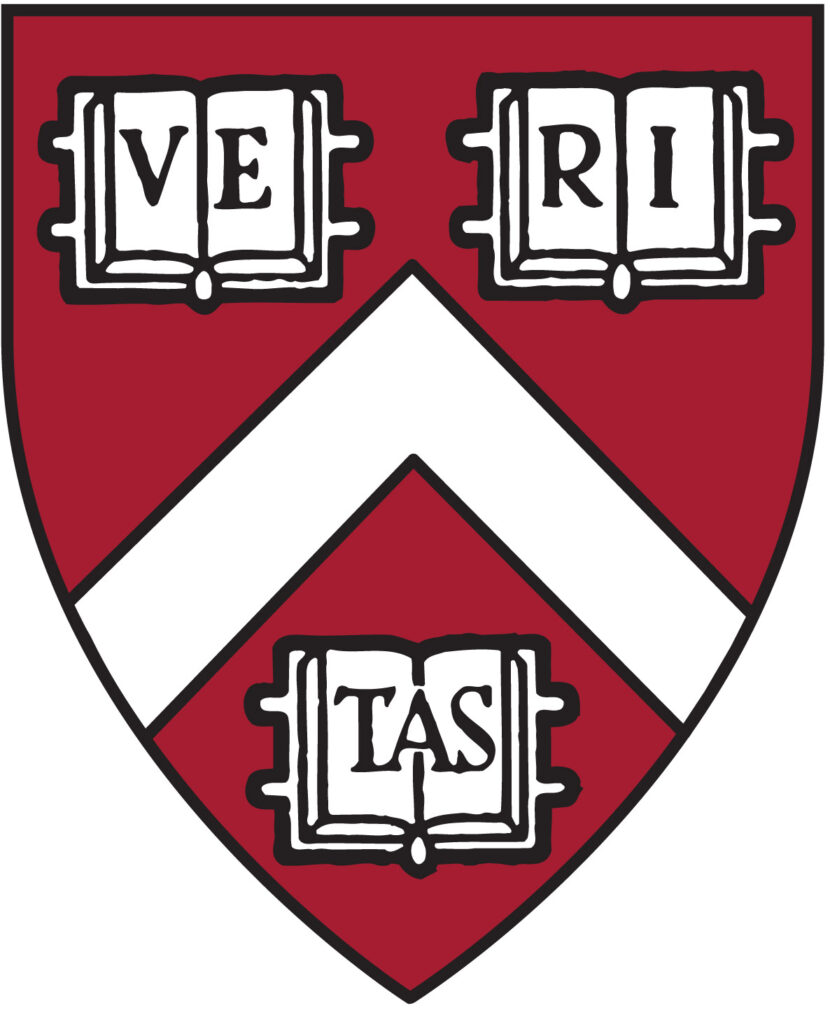
What Is the Bayh-Dole Act and Why It Matters
The 1970s Patent Problem: Why Congress Passed Bayh-Dole
Back in the 1970s, the U.S. government had a problem: it was sitting on a mountain of patents — roughly 28,000 of them — generated from taxpayer-funded research. Fewer than 5% of those patents were ever licensed, let alone commercialized. Why? Because government ownership meant non-exclusive licenses, bureaucratic hurdles, and no incentive for anyone to put serious money into development.
How the Bayh-Dole Act Changed University Patent Ownership
Enter the Bayh-Dole Act of 1980. Congress flipped the script: universities, nonprofits, and small businesses could now keep the patents from federally funded research, provided they played by certain rules. It was a win-win: researchers got the chance to commercialize, investors got certainty, and the public (in theory) got products instead of dusty patent files.
Understanding March-In Rights Under Bayh-Dole
But Congress also built in a big stick — the “march-in” rights* If an institution wasn’t doing its job, the government could “march in” and force licensing of the invention.
The Four Legal Triggers for Federal March-In Authority
The statute lists four triggers:
- No practical application.
- Health or safety needs not being met.
- Public use requirements not satisfied.
- Failure to substantially manufacture in the U.S.
Why No Administration Has Ever Exercised March-In Rights
Sounds dramatic, right? Except here’s the kicker: in over forty years, no administration has ever actually marched in. Plenty of petitions, lots of noise — zero follow-through.
Harvard and the Trump Administration: A Bayh-Dole Showdown
According to reports, the Trump Administration dusted off those march-in provisions and pointed them at Harvard. Commerce sent a letter accusing the university of failing to comply with Bayh-Dole. Harvard fired back, calling the move political payback for its defense of academic freedom.
Political Pressure or Legal Enforcement?
Now, whether you buy Harvard’s explanation or the Administration’s, the bigger point is this: a march-in threat is almost always more about leverage than law. It’s the sword hanging on the wall. Agencies wave it around when they want to pressure a university or company to fall in line.
Bayh-Dole Compliance Requirements for Federally Funded Research
Here’s the practical takeaway for innovators: if you’re working with federal funding, Bayh-Dole compliance isn’t optional. You need to file invention disclosures on time, elect title properly, and make sure your commercialization plans check the right boxes. Screw up the paperwork, and you give an agency an opening — political or not — to come knocking.
Why March-In Threats Matter for Startups and University Spin-Outs
And while Harvard can weather a march-in threat, a startup or small university spin-out might not. Investors don’t like uncertainty, and nothing says “uncertain” like the government hinting it could hand your patent to someone else.
March-In Rights: Bigfoot of Patent Law?
The Trump–Harvard drama is a reminder that Bayh-Dole’s march-in rights are the patent world’s version of Bigfoot: everyone talks about them, nobody’s seen them in the wild, but the threat alone can be enough to change behavior.
* There is a section on “march-in rights in the wikipedia article referenced for the Bayh-Dole Act. It’s about half way down the page.
For a related article on USPTO news concerning the Trump administration: The Trump-Lutnick Patent Tax
Call of Duty Lawsuit Ends Without Attorneys’ Fees for Activision
The Fifth Circuit just weighed in on a copyright fight between retired wrestler Booker T. Huffman and video game giant Activision. Huffman claimed that Activision’s Call of Duty: Black Ops IV “Prophet” character infringed his G.I. Bro comic book poster. A jury sided with Activision, but the company wanted Huffman to foot the bill for its legal fees—arguing the case was frivolous.
The district court said no, and the Fifth Circuit backed that decision. Relying on the Supreme Court’s Fogerty factors, the court found Huffman’s claims weren’t frivolous or objectively unreasonable, noting the case touched on unsettled areas of copyright law. The panel stressed that fee awards aren’t automatic, and the trial judge’s detailed six-page analysis showed no abuse of discretion.
Not everyone agreed. In a sharp dissent, Judge Oldham called the suit “speculation piled on fantasy piled on a pipe dream” and said Activision should have been compensated for defending a baseless $32 million claim.
At the end of the day, Activision won the battle but had to eat its own legal fees—reminding us that “winning” in court doesn’t always mean walking away richer.

Booker T Huffman from his wrestling days.
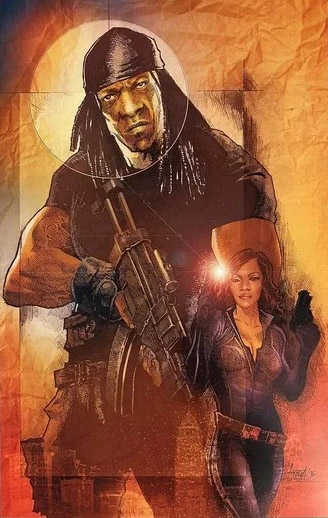
The G.I. Bro Comic Poster
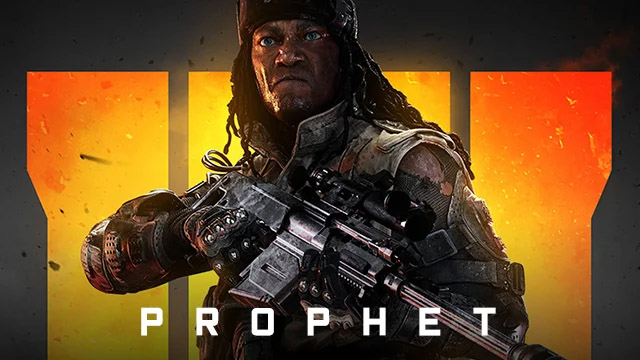
Activision’s Call of Duty: Black Ops IV “Prophet” character
For more information on copyright infringement and litigation, see our FAQ section.
Secrets, Secrets Are No Longer Hard to Keep (in Court)

Previously, courts required trade secret plaintiffs to identify their trade secrets with particularity. That requirement applied before defendants had to respond to discovery. In practice, however, this rule created a familiar problem.
No matter how a plaintiff described its trade secrets, defendants often refused to respond. They argued that the identification was still not particular enough.
At the same time, courts typically declined to step in. They would not say whether the identification was sufficient. Nor would they explain what more was required. As a result, many trade secret cases stalled early. Some went nowhere at all.
That approach changes with Quintara Biosciences, Inc. v. Ruifeng Biztech, Inc. The court held that the Defend Trade Secrets Act (DTSA) imposes no early “reasonable particularity” requirement. A plaintiff need not fully define its trade secrets at the outset. Instead, the adequacy of the identification is addressed later. It is usually resolved at summary judgment or trial.
This rule differs, however, from California law. Cases under California’s Uniform Trade Secrets Act (CUTSA) still follow a stricter path. CUTSA requires plaintiffs to identify alleged trade secrets with “reasonable particularity.” That obligation applies at the very start of litigation.
You might also be interested in our article: When Inventors Leave: A Hard Lesson in Trade Secret Law
AI’s secret ingredient: Text, Data, and Fair Use
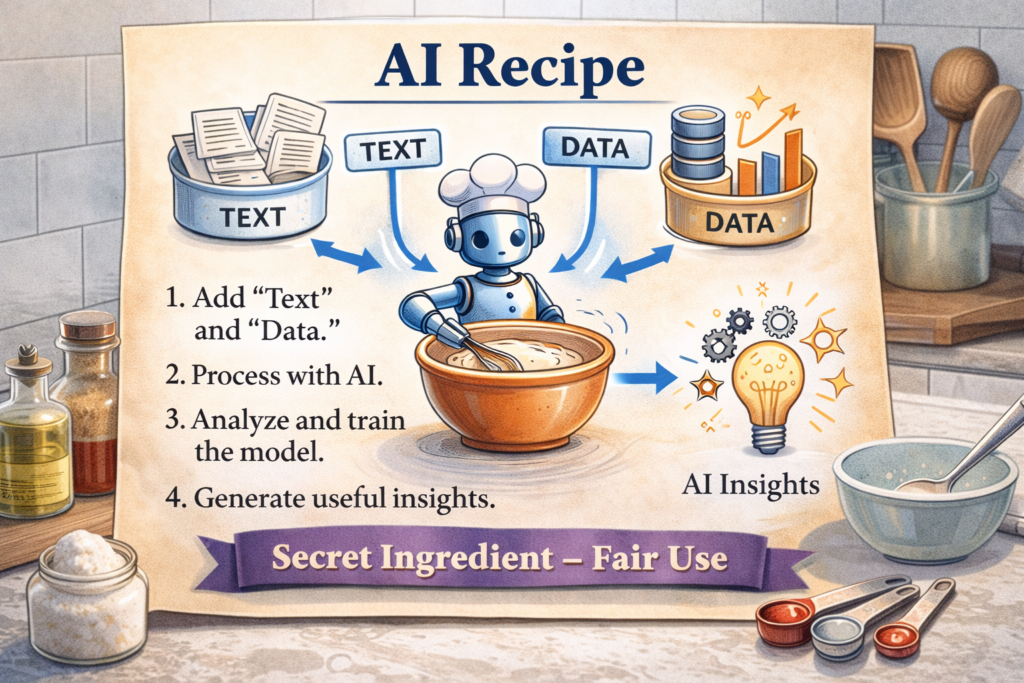
Data Mining Includes Copyrighted Materials
Text and data mining (TDM) means collecting large volumes of data from the internet. From that data, large language models identify patterns and generate new text. But accessing massive amounts of text quickly raises copyright concerns, as it inevitably steps on copyrighted toes.
Fair Use as a Justification for Using Copyrighted Materials
However, copyright law offers a possible safety valve: the Fair Use Doctrine. Under fair use, copyrighted materials do not always require explicit permission. In the US, many large technology companies rely on fair use to justify training AI systems on copyrighted works.
Those factors are:
- the purpose and character of the use,
- the nature of the copyrighted work,
- the amount and substantiality of the portion used, and
- the effect on the market for the original work.
Fair use allows limited use of copyrighted material in specific circumstances, but it is never automatic or guaranteed. Instead, courts apply a case-by-case analysis using four factors.
Class Action Responses to the Fair Use Justification
Several class actions argue that AI training is not fair use. Their claim focuses on the scale of copying involved.
So far, courts have largely disagreed, finding AI training permissible when used for pattern recognition.
However, that conclusion depends on models not reproducing expressive content.
Still, the legal landscape remains unsettled, and several cases are ongoing. Future rulings could require broader licensing frameworks for AI training.
Fair Use has been a consistent subject of attention with AI. Here are some previous articles on the developments:
Fair Use and AI Training: Buy it or Bye-Bye
Doctrine of Equivalents
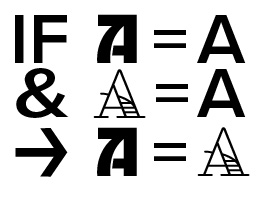
What Is the Doctrine of Equivalents in U.S. Patent Law?
The Doctrine of Equivalents is a legal principle in U.S. patent law that allows a court to find infringement even when the accused product or process does not literally fall within the scope of a patent claim, as long as it is equivalent in a meaningful way.
The Function-Way-Result (FWR) test is one of the primary tools used to assess this equivalence.
How the Function-Way-Result (FWR) Test Works
Under the FWR test, a court or jury evaluates whether the accused product or process:
- Performs substantially the same function as the claimed invention.
- Operates in substantially the same way as the claimed invention.
- Achieves substantially the same result as the claimed invention.
If all three criteria are met, the accused product or process may infringe under the doctrine of equivalents.
Applying the Function-Way-Result Test: A Nail-and-Screw Example
The classic analogy is: suppose a patent claim covers a method of joining two wooden planks together “using a nail.” An accused product instead uses a screw to fasten the planks. Although the literal language of the claim specifies a nail, a court applying the doctrine of equivalents could find infringement. That is because both the nail and the screw perform the same function of fastening the planks together, they operate in substantially the same way by penetrating the wood and holding the pieces in place, and they achieve the same result of creating a secure joint. Thus, under the Function-Way-Result test, a screw may be considered an equivalent to a nail in this context.
Limits on the Doctrine of Equivalents: Prosecution History Estoppel
Note that the Doctrine of Equivalents is generally not available for claim elements that were narrowed during prosecution for reasons related to patentability, unless the patentee can successfully rebut the presumption of estoppel. However, if the amendment was not related to patentability, or the patentee can show the change was tangential, DOE may still apply.
You might be interested in a recent article about the doctrine of equivalents: When “Close Enough” Isn’t Good Enough: Colibri v. Medtronic and the Push–Pull of Patent Law
The USPTO has suspended expedited examination of design applications
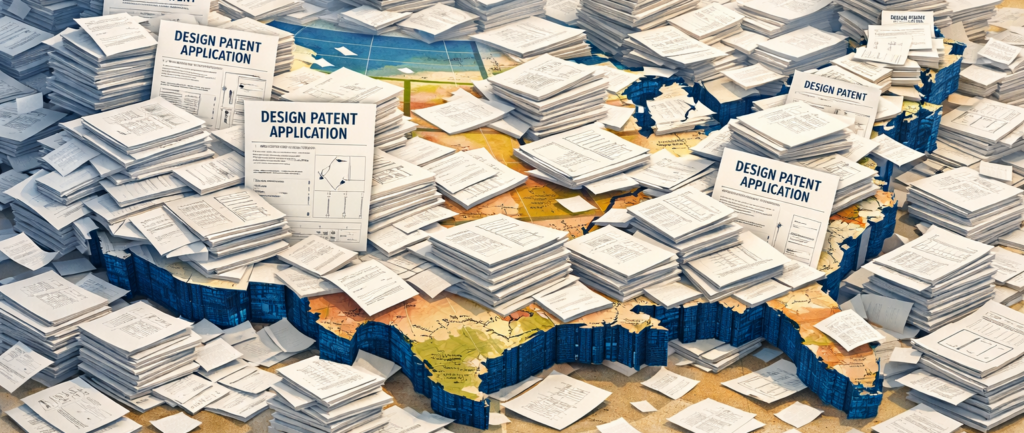
The USPTO has suspended expedited design applications to combat fraud.
The PTO had suspended expedited examinations of design applications back on April 17, 2025. Now it has decided to eliminate them altogether, as part of an effort “to combat fraud”. The announcement said “requests for expedited examination of design applications have surged 560% in recent years, caused in large part by fraudulent applications.”
The source of the massive increase in applications is China
Apparently, the largest source of these fraudulent applications is China, but why?
The Chinese government has been offering subsidies for foreign trademark and patent filings. This effectively incentivizes filling applications, even when there is no intent to use the mark or pursue protection.
This is, as the PTO acknowledges by its actions, a burden on the system and potentially harms legitimate applicants.
Chinese government subsidies for filing applications
https://www.gerbenlaw.com/blog/chinese-business-subsidies-linked-to-fraudulent-trademark-filings/The Chinese government’s subsidies of foreign IP filings has been a concern for the US for over a decade.
Chinese applicants may be earning approximately $800 USD in subsidies, for a filing fee of $225-275, meaning it is profitable to send crowds of filings to the US.
The question of motives is a concern. Is this an attempt to undermine the US trademark registration system? Or is it motivating by China transitioning from being primarily a manufacturer to an innovator?
Investing heavily in foreign IP may be an attempt to increase international competitiveness.
Why China is incentivizing application filings is unknown
But there has been a huge influx of illegitimate filings with doctored specimens- for example the same picture of a shoe with 10 different marks on it. As a counterpoint, the Chinese central government sets the targets. But it is up to the local governments to achieve those targets. This could create incentives for the local officials to prize hitting number-of-filing quotas, while overlooking quality. Thus one could argue that the Chinese central government isn’t trying to undermine the US per se. It may simply be a by-product of the race to establish themselves more solidly in the international market.
Whatever the motives, the increase IS a burden and the USPTO is taking steps to remedy the situation.
We have some other articles concerning fraud at the USPTO, and their ongoing efforts to combat it.
52k more fraudulently filed trademark applications and registrations cleared
USPTO to Charge Extra for Late Continuation Applications — Don’t Get Caught by the Six- and Nine-Year Traps

The U.S. Patent and Trademark Office (USPTO) just rolled out a new “late-filing penalty” for continuation applications that come in six or nine years after the earliest priority date in the family.
This isn’t just a cash grab. The USPTO has likely decided that ultra-late continuations — sometimes filed a decade after the original application — are being used to keep claim scope in flux long after the market has settled. That makes life unpredictable for competitors, and the Office is signaling it wants to curb that practice.
What Is a Continuation Application and Why It Matters
First, in case you need a reminder of what a continuation application is, think of it as keeping the door open. You’ve got an original patent application on file. A continuation* is a new application that uses the same description but lets you go after different claims — broader, narrower, or just different angles. The beauty is you keep the original filing date, which is gold in patent land.
USPTO’s New Late Continuation Filing Surcharge Explained
The USPTO will now charge additional fees for continuation applications filed six or nine years after the earliest priority date in the patent family. The longer you wait, the more you pay.
New USPTO Continuation Fees: Six-Year and Nine-Year Penalties
The new price of waiting
- Large entities: $2,700 (six years) / $4,000 (nine years)
- Small entities: $1,080 (six years) / $1,600 (nine years)
- Micro entities: $540 (six years) / $800 (nine years)
These numbers aren’t small, and they’re designed to get your attention. If you want to avoid paying them, you’ll need to plan ahead.
Why the Six-Year Deadline Is a Real Risk in Slow Patent Prosecution
This matters more than you think because patent prosecution is slow — sometimes glacial. In complex tech, pharma, or life sciences, it’s normal to be past the six-year mark before your first U.S. application is even allowed. File your continuation then, and you’re automatically in surcharge territory.
Questions to ask before you hit six or nine years
- Is this a blockbuster product? Keep a continuation pending — it’s the best way to adapt and keep competitors in check.
- Is anyone sniffing around your market? Continuations let you tailor claims midstream in litigation.
- Do you have features you never claimed? File early and lock them in without paying the extra fee.
- Did the USPTO restrict your application? That means they spotted more than one invention. File a divisional before the clock runs out.
Divisional Applications and Restriction Requirements: Don’t Miss the Window
If the USPTO issued a restriction requirement, that’s often a sign you have additional claim scope available. A timely divisional application can preserve those rights without triggering late continuation surcharges.
Six-Year vs. Nine-Year Continuation Strategy: A Practical Timeline
Goal: Keep strategic patent options alive without paying the USPTO’s new “late continuation” surcharges.
At 5½ Years from Earliest Priority Date
- Review portfolio: Identify any cases where you might want broader or different claims.
- Flag restrictions: Look for USPTO restriction requirements — these often signal unclaimed inventions.
- Decide early: File continuations/divisionals now if there’s any chance you’ll want them.
Six-Year Mark (Penalty threshold #1)
- If you file after today → you pay $2,700 / $1,080 / $540 (large/small/micro).
- If the case is valuable or the market is hot, consider filing before today to avoid this first surcharge.
Between Six and Nine Years
- Monitor product and market developments closely.
- Keep at least one application alive for critical cases.
Nine-Year Mark (Penalty threshold #2)
- Filing now costs $4,000 / $1,600 / $800.
- By this point, you should already have filed anything you need — paying this is last-resort territory.
How to Avoid USPTO Late Continuation Fees
Don’t let allowance dictate when you file continuations. Let strategy dictate — and let the clock tell you when it’s time to move.
Let Strategy — Not Allowance — Drive Continuation Timing
The six- and nine-year deadlines are now hard markers. The USPTO’s message is clear: if you’re keeping applications alive deep into the timeline, you’re going to need to pay for it. For everyone else, planning ahead avoids the surcharge and keeps your strategic options intact.
* for more information on continuation applications, check our FAQ page on patent prosecution. The question on continuations is fifth from the bottom.
If USPTO policy towards different entity sizes is of interest, check out these articles: When Trying to Save Money May Cost More
Do USPTO Fee Discounts Hurt Inventors’ Chances? Probably Not.
